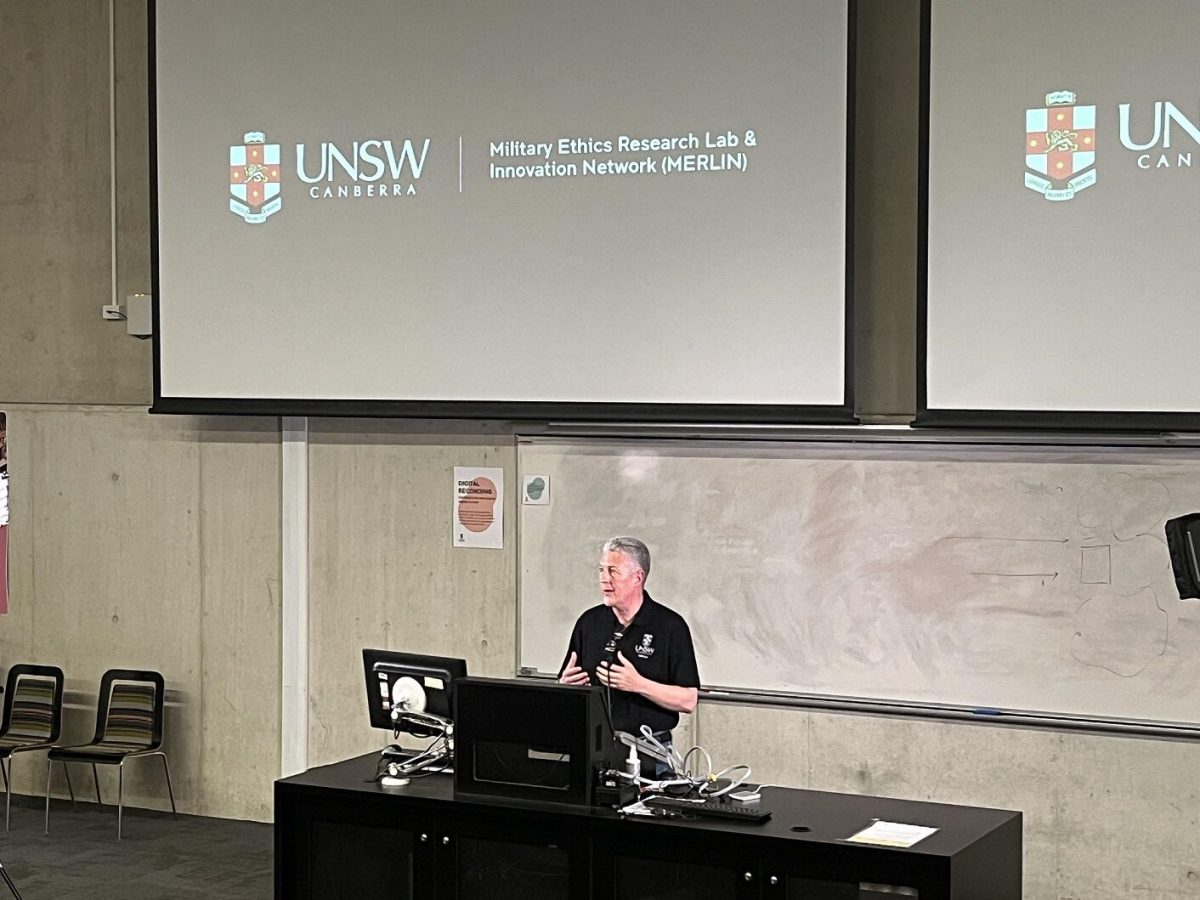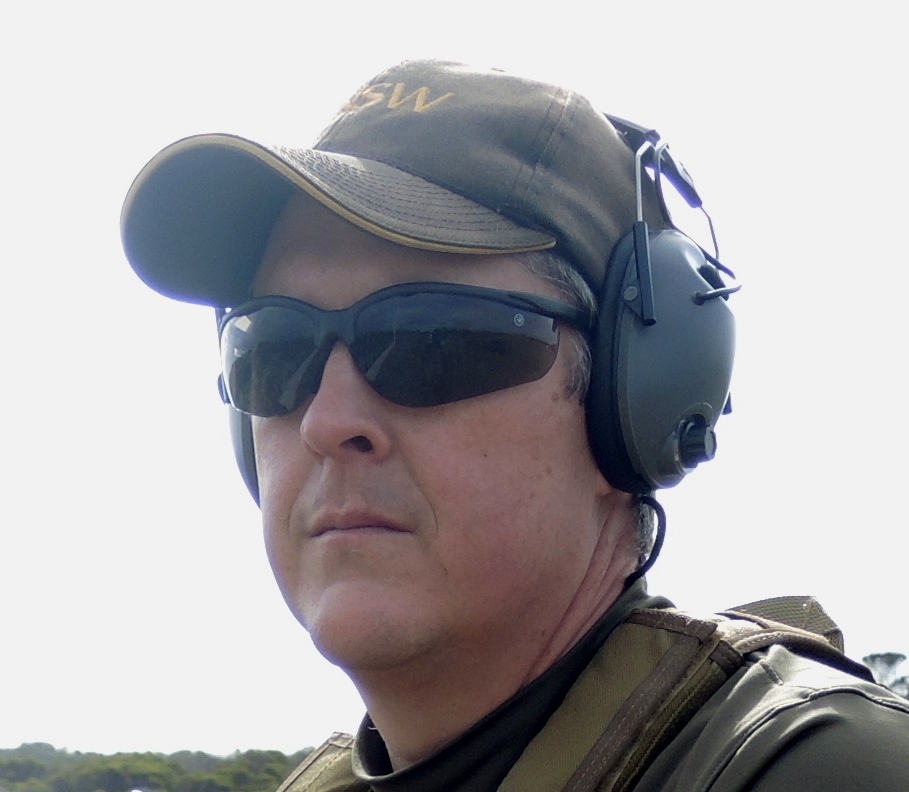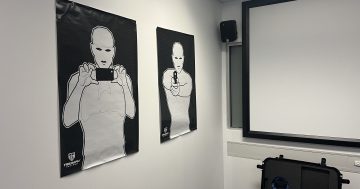
Before his philosophy career, Professor Baker was in the British Army for a short time and worked in South Africa. Photo: LinkedIn.
It was a former fling’s brother who got Professor Deane-Peter Baker into the field of military ethics. While working in South Africa as a philosopher, he saw the man arrested on TV for his role in an attempted coup in Equatorial Guinea.
Now the director of professional education at UNSW Canberra runs the Military Ethics Research Lab and Innovation Network (MERLIN), a new research hub filling in the gaps in moral and ethical quandaries posed by combat.
Professor Baker says he first met the arrested mercenary as an undergraduate, when the man was working for a company named Executive Outcomes. When South Africa’s apartheid military transitioned to the new government, a few units were not kept in and became ”contracted combatants” for private military organisations that came before Black Water.
After witnessing the event while teaching theology at a South African university, he ended up writing his first full-length book, Just Warriors Inc. The work led him into teaching at the US Naval Academy before coming to Canberra.
“The more I’ve been engaged with military people, the more I realise that the big gap is not so much in the question of what the right thing to do is,” says Professor Baker. “There are important questions there, but as a discipline we’ve come a long way in answering them.
“There’s lots of good work on autonomous weapons, private military contractors and those kinds of conceptual ideas, but the real gap is in behavioural stuff.
“It’s one thing to say this is what you should do in situations X and Y. But how do we ensure that people do those things? And in the background is this growing recognition of the idea of ‘moral injury’.”
Borrowing from his colleague Ned Dobos, Professor Baker says there are two kinds of ”moral injury”.
“A conflict with your sense of self: Usually one particularly traumatic event where your sense of identity is so shaken that we actually become unable to function in the world. We are overcome with grief, anger, shame and those kinds of emotions.
“A numbing to confronting situations: This is more likely to happen from repeated exposure to a challenging situation, where you end up not responding in situations that require a moral or an ethical response. It’s more dangerous because you don’t necessarily recognise you have it.”
Professor Baker is particularly excited to lead MERLIN within a military environment, through a tailored and outcomes-focused approach. So far, he says, the practicality of this work has been warmly recognised by the military, which recognises the value of living by the ”just-war” philosophy as a professional code similar to the medical field’s Hippocratic oath.
“People also have to understand what the basis of legitimacy is for what they do,” he says. ”Why it’s acceptable to go places and kill people. Why it’s not acceptable to kill those others.
“And those are conceptual, quite deep philosophical things, but that has to be combined with an understanding of ‘How do you think about your particular unit that you’re leading and what are the risk factors?'”

Professor Baker recently published a guidebook for military commanders on specific ethics around different kinds of special forces operations, which has a 30 per cent discount code, ”TESPO30′‘. Photo: UNSW Canberra.
MERLIN’s goal is to disperse as much information as possible in collaboration with the small community of military ethicists around the globe.
The research hub is collaborating with five institutions in the US, Canada, the Netherlands and the UK by comparing each other’s curricula to find the most effective education methods.
And Professor Baker says they’re working on new research questions, such as the comparative impact of drones, with either four legs or wheels, on a unit of soldiers.
“Does either have a greater tendency to get attached to things that look like pets? Is there some risk that will lead you to want to reduce the machine’s risk and shift risk to a non-combatant or your own team?”
Professor Baker says we need to move beyond opinions and arguments by gathering more empirical data on these questions.
“Philosophers have a tendency to often debate things and in the end, not have a way to resolve that debate.
“But what counts as success within academia often has very little bearing on what is useful within the military world. And that’s what we’re trying to do in bridging that.”



